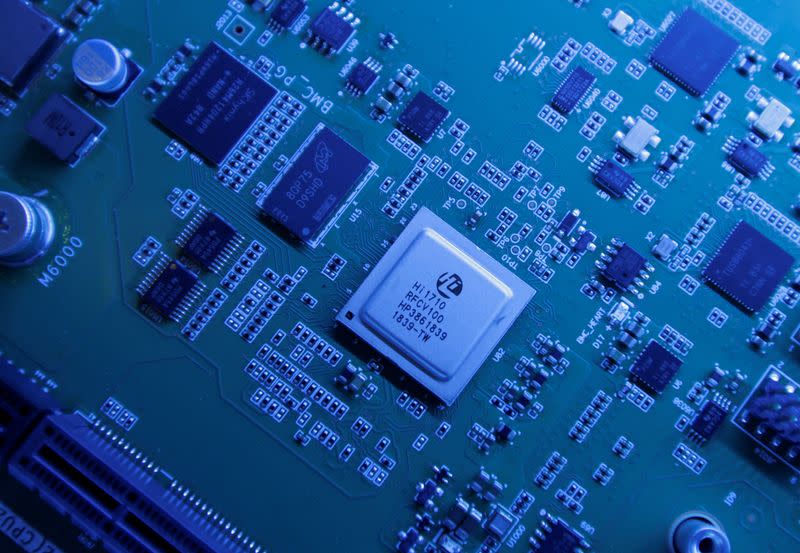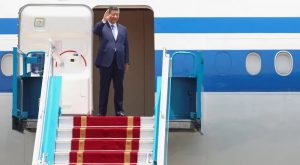The Biden administration has stopped approving licences for US companies to export most items to China’s Huawei, sources say.
While Huawei has faced US export restrictions for several years on items for 5G and other technologies, Commerce Department officials in the US had – till now – granted licences for some American firms to sell certain goods and technologies to the Chinese tech giant.
Chip and components maker, Qualcomm, for example, got permission in 2020 to sell 4G smartphone chips to Huawei.
One person familiar with the matter said US officials are creating a new formal policy of denial for shipping items to Huawei that would include items below the 5G level, including 4G items, Wifi 6 and 7, artificial intelligence, and high-performance computing and cloud items.
Another person said the move was expected to reflect the Biden administration’s tightening of policy on Huawei over the past year.
Licences for 4G chips that could not be used for 5G, which might have been approved earlier, were being denied, the person said.
Toward the end of the Trump administration and early in the Biden administration, officials had still granted licences for items specific to 4G applications.
A US Commerce Department spokesperson said officials “continually assess our policies and regulations” but do not comment on talks with specific companies. Huawei and Qualcomm declined to comment.
ALSO SEE:
Japan Chip Equipment Makers Unaware of New China Restrictions
China ‘seriously concerned’
China’s foreign ministry said on Tuesday it was seriously concerned reports that the US has stopped approving licences for its companies to export items to Huawei.
“We are closely following relevant developments,” Mao Ning told a regular news briefing in response to a query on the export curbs.
“China is strongly against the US’s abuse of state power to hobble Chinese companies by stretching the concept of national security,” Mao said, adding that the country would protect its companies, without saying how.
American officials placed Huawei on a trade blacklist in 2019 restricting most US suppliers from shipping goods and technology to the company unless they were granted licences.
Officials continued to tighten the controls to cut off Huawei’s ability to buy or design the semiconductor chips that power most of its products.
But US officials granted licences that allowed Huawei to receive some products. For example, suppliers to Huawei got licences worth $61 billion to sell to the telecoms equipment giant from April through November 2021.
In December, Huawei said its overall revenue was about $91.5 billion, down only slightly from 2021 when US sanctions caused its sales to fall by nearly a third.
- Reuters with additional editing by Jim Pollard
NOTE: This report was updated on January 31, 2023 with China’s reaction to this news.
ALSO SEE:
US Blacklists China Firms in AI Chip Sector, Russia Suppliers
US to Ease Penalties on Some Firms Amid ‘Better’ China Behaviour
US Fears China Flooding Global Market With Older Chips
SoftBank’s Arm Cannot Sell Cutting-Edge Chip Designs to China
China Files Complaint Against US Microchip Curbs to WTO
US to Reject ‘Untrustworthy’ New Huawei, ZTE Equipment
























